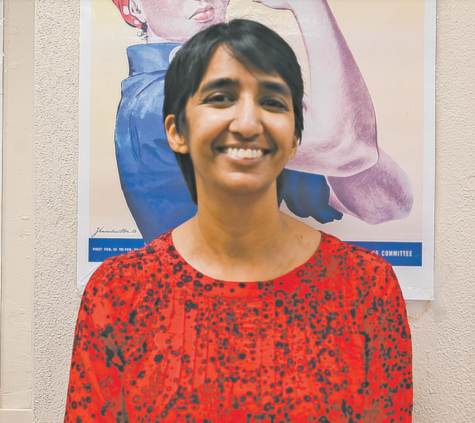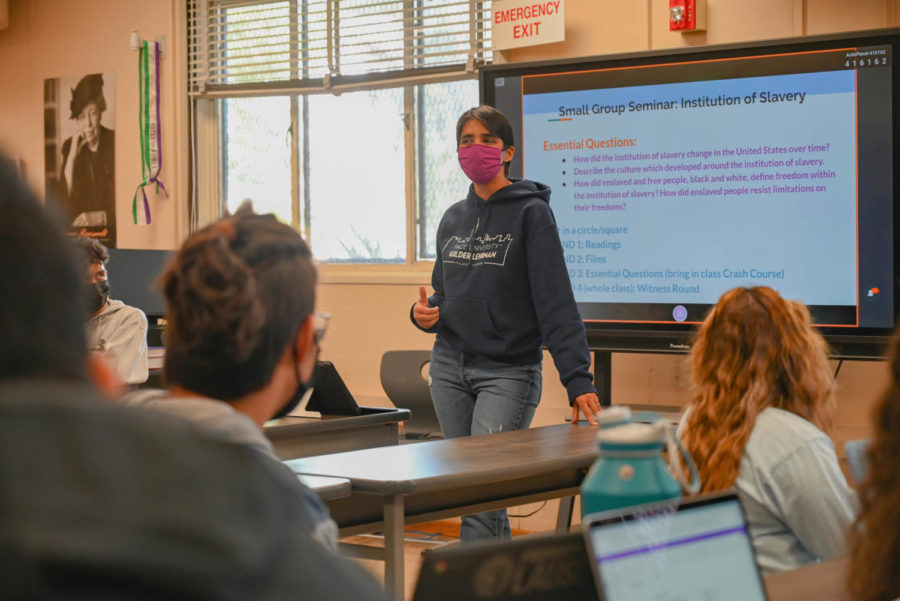What subject/subjects do you currently teach? I teach Honors World History, Honors United States History, and AP United States History.
Who or what initially inspired you to pursue a career in education? I became a teacher to address educational inequity in American public schools. Every young person in America deserves a high-quality, rigorous public school education. In fact, our democracy depends on it. But so many factors prevent this – your zip code, your family background and whether your community can fill funding gaps. Throughout my career, I have sought out schools that are committed to this goal of equal, excellent education for all. I am grateful to be part of such communities like Van Nuys High School.
What are five words that describe you? Lifelong learner, reader, kind, Indian-American and tired.

What are your interests and hobbies outside of the classroom? I am in a graduate program for American history and love studying the history of Los Angeles through the lens of communities of color. I have three kids ages five through twelve and enjoy spending time at our local beaches, museums and hiking trails with them. I enjoy running and jogging on the Orange Line bike path on weekends.
In your experience, what has been the most rewarding aspect of your profession? My students allow me to explore history with new eyes every year. They also challenge me to question my own assumptions about race, gender, sexuality, culture and more as our society continues to evolve. I am grateful for their kindness, patience and inquisitiveness.
In your experience, what has been the most challenging aspect of your profession? Public schools are ground zero for so many politically charged conversations in America. I struggle with knowing my colleagues and I work very hard to create the best learning opportunities for our students but are often scapegoats for bigger social issues. I also struggle to balance my commitment to my students and my life outside of school.
What is your teaching philosophy? I try to create a classroom where all students are honored and respected. We approach the study of history as historians do, by asking interesting questions and digging into historical sources to reconstruct narratives. My role is to guide students through this inquiry process and provide opportunities to showcase student work through projects like documentary films, museum exhibits, debates and more.
What are some overarching lessons you aspire for students to learn from your class? I hope students leave their history class understanding that knowledge is power. When we study history, especially the histories of marginalized communities, we can call on our own community to be its best self.


